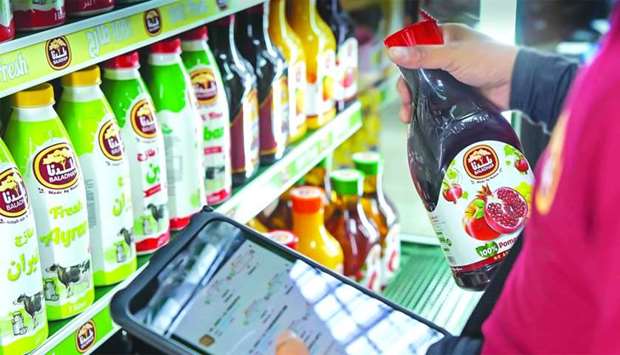By continually focusing on “driving business efficiency through actively streamlining all aspects of the value chain”, Baladna posted a nearly seven-month net profit of QR83.9mn, equivalent to 19% of its revenue.
The company earned a total revenue of QR441.9mn during the seven-month period, Baladna’s interim results for the period that ended in June showed.
In terms of second quarter (Q2) performance, net profit stood at QR44.2mn, corresponding to 22% of the revenue.
The Q2 results have shown a growth of 55% compared to Q1.
For the seven months from the establishment date (December 2, 2019) to June 30, earnings per share (weighted average) equate to QR0.046.
Retained earnings balance (on June 30) is QR74.2mn after distributing the first interim dividend of QR40mn in April 2020.
“These figures confirm the strong financial and commercial performance of the company,” Baladna said.
According to Baladna, the “macro-trading conditions during the second quarter rapidly deteriorated with the onset of the Covid-19 pandemic.”
Despite the “challenging” external environment, Baladna revenue growth is up 13% versus the first quarter.
The “robust” performance is driven by several key factors – implementation of effective business continuity measures to protect employees and consumers to ensure uninterrupted production and supply to market, positive Ramadan seasonal impact driving increased household consumption and ongoing portfolio expansion with innovation.
Baladna said its productivity gains within the farming division warrant specific mention. With a herd size now exceeding 20,000, the average daily milk yield per cow has “significantly” improved to 37.9 litres, up from 31.1 litres for the same period a year ago.
“Improving productivity is positively strengthening margin delivery”, the company said.
As of June 30, Baladna had a total of 210 products.
Baladna’s subsidiary, Baladna Food Industries (BFI) is Qatar’s largest dairy and beverage producer.
The company’s fact sheet shows it has several production lines of fresh milk, yoghurt, laban, long-life milk, cheese, labneh, fresh cream, desserts, ghee and non- dairy products, namely juices, meat and organic fertilizers.

